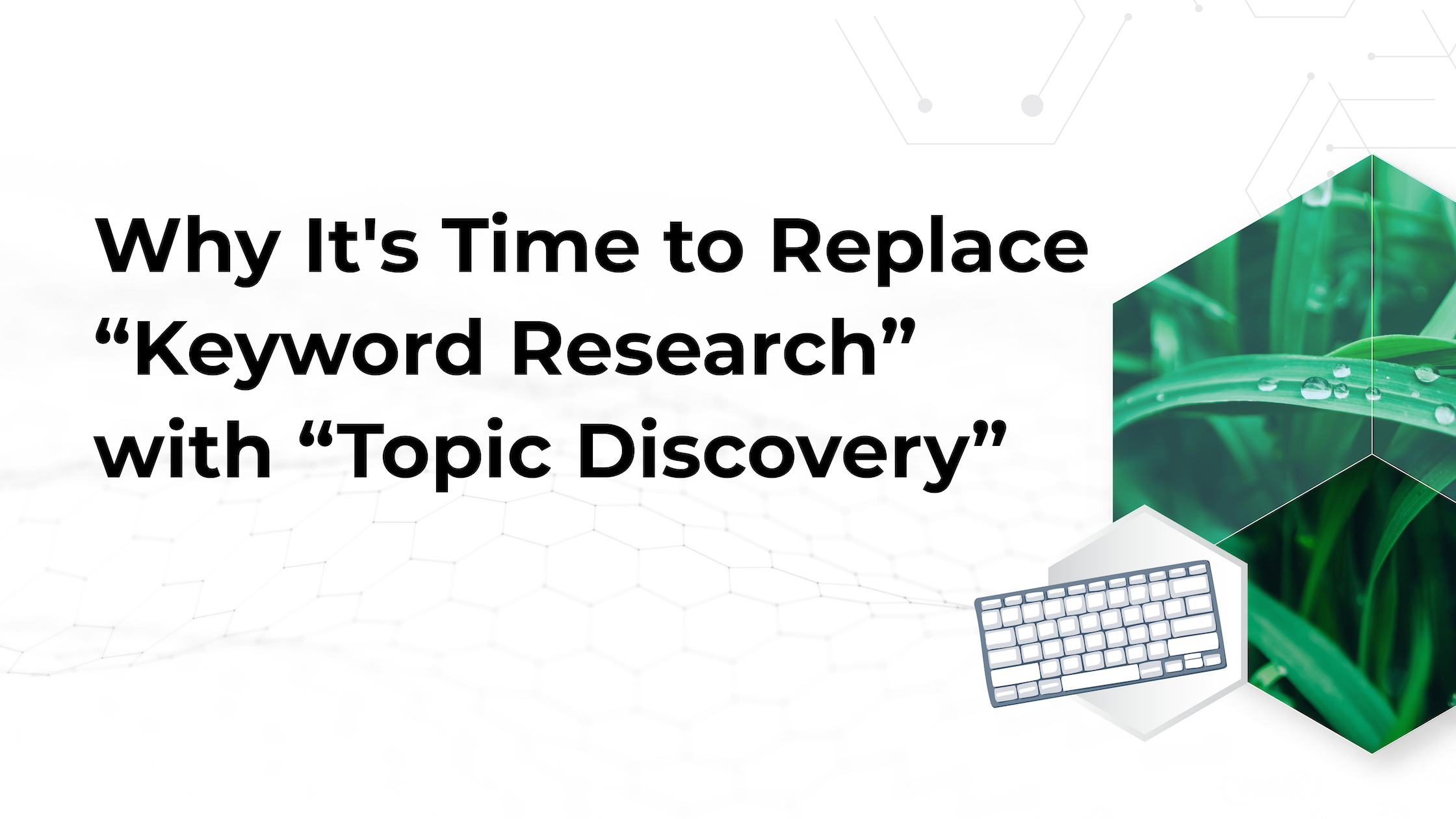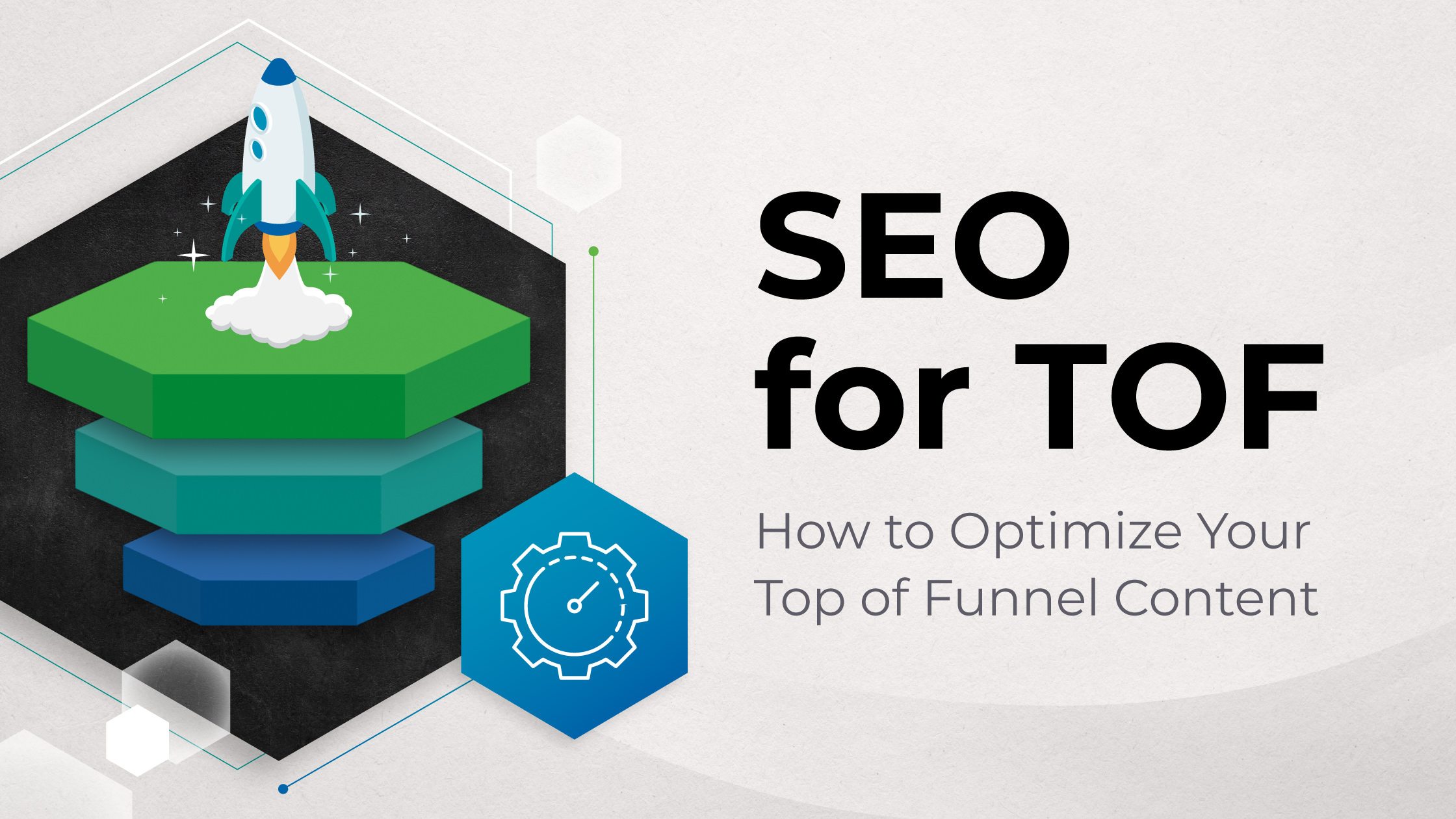
Author: Chris Burdick
Can we please stop calling it “keyword research”?
It’s not just about keywords anymore.
It’s about understanding people, the problems they’re trying to solve, how they express themselves, and the words they use when talking to search engines or AI tools.
Let’s call it what it really is: topic discovery.
This isn’t just SEO anymore. It overlaps with Customer Experience Research (CXR), intent mapping, and content strategy.
You’re not just looking for what people are searching. You’re trying to understand why they’re searching.
And yes, AI can help with this, but never forget that these tools are exactly that – *tools*, not magic.
They make mistakes, they guess, and sometimes they just make things up. You still need to verify everything against real data and actual people.
Here’s how you can actually use AI for this new way of doing “keyword research.” I’ve even added some example prompts to get you started:
1. Figure Out What People Are Really Looking For
If someone’s typing something into a search bar, there’s a reason. AI can help you uncover that reason and what kind of content might actually help them.
Start by pulling a list of keywords from your favorite tool (Ahrefs, Semrush, GSC, etc). Then give them to the AI to sort based on what the user is likely trying to accomplish.
Prompt:
- “Here’s a list of keywords: [paste or attach list]. Group them by what the person is probably trying to do (learn, buy, compare, navigate) and tell me what kind of page would help them best.”
Extra Tip: Ask the AI to suggest page types for each group too – like blog post, product category page, comparison guide, or FAQ page – and what to include on those pages.
2. Compete with Google’s AI Answers
Google’s starting to answer everything directly in the search results. So if you’re going to earn clicks, your content has to offer more than a quick summary.
Prompt:
- “Find questions in the ‘vegan skincare’ niche that probably need a personal recommendation, expert advice, or real-world experience. Suggest how I could make my content more helpful than a generic AI response.”
Extra Tip: Ask the AI to give examples of how a personal story, strong POV, or comparison table could add depth. Use those as content modules when building out your page.
3. Make Better Use of Exported SEO Data
AI won’t magically know what you and your competitors rank for, but if you feed it the data from Ahrefs or Semrush, it can find the interesting stuff fast.
Prompt:
- “Here are two CSVs from Ahrefs. One is my site and the other is my competitor. Highlight keyword gaps, group them by topic, and tell me which ones are easiest to win based on difficulty and search intent.”
Or go deeper:
- “Here are three URLs from my competitors. Summarize what they’re doing well and suggest how I could improve on their content.”
Extra Tip: Ask it to flag opportunities where you already have a page partially ranking so you can optimize and move up with minimal effort.
4. Roleplay Your Audience
This is one of my favorite tricks. AI is great at pretending to be other people. Use that to your advantage.
Prompt:
- “You are a 34-year-old dad looking for dinner ideas on your phone while picking up the kids. What would you say to Siri or Google?”
Or:
- “You’re a 22-year-old sneaker collector hunting for a new everyday pair under $100. What would you type or ask ChatGPT?”
Extra Tip: Ask AI to generate 3-5 persona types and then run the same search scenario across each. This gives you more natural language variations to build content around.
5. Mine Reddit, Reviews, and Forums
AI is good at summarizing big messy conversations. Use that to pull real pain points, complaints, and curiosities out of places like Reddit or Amazon reviews.
Prompt:
- “Pull common themes from Reddit posts about ergonomic office chairs and turn them into blog post ideas.”
Extra Tip: Ask AI to extract direct quotes or questions users are asking – they make great subheadings and FAQ content.
6. Build a Full Content Strategy
Instead of thinking one keyword at a time, ask AI to help you map out a whole topic.
Prompt:
- “Give me a content map for ‘gut health’ with a main guide, supporting articles, FAQs, and internal linking ideas. Rank the ideas by importance.”
Extra Tip: Ask it to suggest publishing order and which topics should be combined or split into separate posts based on search intent.
7. Find Topics Before Everyone Else Does
AI can’t predict the future, but it can pick up early signs of what’s coming by scanning Reddit, forums, and trend data.
Prompt:
- “What are people starting to talk more about in the ‘eco-friendly travel gear’ space? What hasn’t been written about yet but shows signs of growth?”
Extra Tip: Make sure your AI tool is in “Search” or “Browse” mode so it has access to the internet in real time instead of using old training data. It’s extra important to have up-to-date info for this one.
Don’t Skip the Human Work
AI can give you fast results and creative angles. It’s a great starting point. But it still makes stuff up, and it doesn’t (in fact, it can’t) admit when it doesn’t know something.
So:
- Double-check ideas with real tools like Google Search Console or Ahrefs.
- Actually look at the search results. Who’s ranking? What’s missing?
- Talk to your customers. Use their words. Their frustrations. Their stories.
AI is a fantastic helper, but you’re the one who understands your audience.
That last 10 to 20 percent of judgment, creativity, and empathy? That’s all you.
Give these ideas a try. Remix and combine the prompts. Share what’s working. Maybe even suggest a new term to replace “keyword research”.
I’d love to hear from you.




